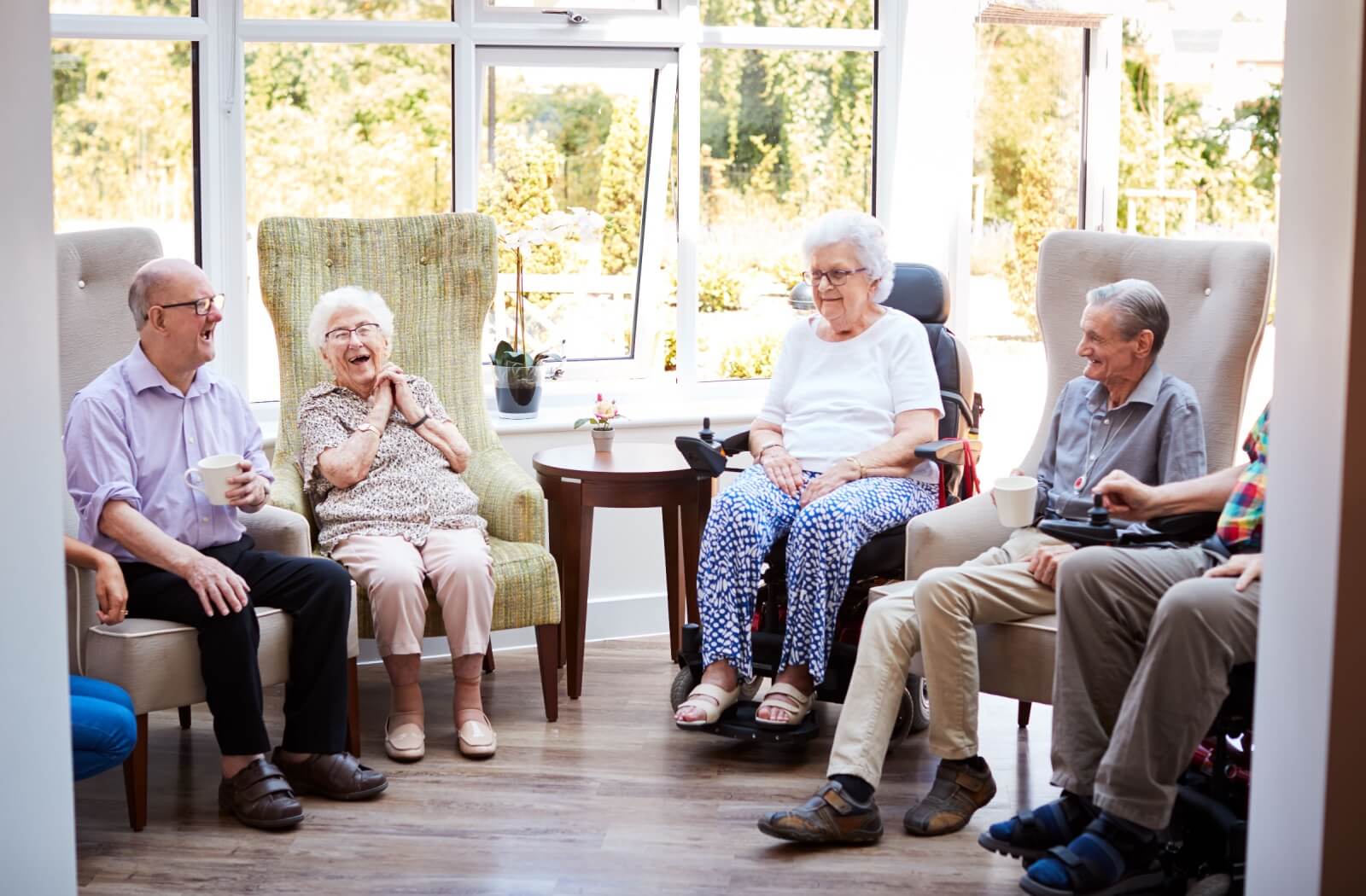As our loved ones age, their care needs may evolve, prompting families to consider different residential options. Memory care and personal care communities are two prominent choices.
The key differences between memory care and personal care homes include the training of staff, security measures, activities and programs, and cost. Choosing the right option depends on personalized factors.
It’s important to discuss with your family which environment would best meet their needs and promote their well-being. The first step toward finding the right future home for your loved one is understanding your options.
Understanding Personal Care
Personal care homes offer a supportive living environment tailored to assist with activities of daily living (ADLs) like bathing, dressing, medication management, and meal preparation. This option is ideal for older adults who require some assistance with day-to-day tasks but do not need the level of care provided in memory care communities.
Features of Personal Care Homes
Personal care homes provide a blend of support and independence, enriching residents’ lives with community engagement, safety, and autonomy. The main features typically encompass:
- Enhanced social interaction, emphasizing the development of connections within the community through various social events and communal dining.
- Continuous help with daily activities and medication management, ensuring that residents receive comprehensive care at all times.
- Maintenance of personal independence through ample support services, allowing residents to lead their preferred lifestyle.
- Housekeeping and maintenance services free residents from daily chores so they can pursue their hobbies and interests.
- A diverse range of social and recreational programs are designed to suit different preferences, encouraging an active and engaging lifestyle.
Understanding Memory Care
Memory care offers specialized long-term support for individuals with Alzheimer’s, dementia, or other forms of memory impairments needing more comprehensive care than what’s typically available in assisted living communities.
These communities are tailored to address the unique needs of those with cognitive challenges, featuring structured environments and activities focused on enhancing cognitive function and overall well-being.
Features of Memory Care Communities
Choosing a memory care community presents several advantages by providing a supportive, secure environment customized to the specific needs of each resident. Although offerings may vary by location, common features include:
- A community-oriented atmosphere that fosters social connections and friendships.
- Safe environments designed to prevent disorientation and ensure the well-being of residents.
- Professional staff trained specifically in memory care, offering knowledgeable and empathetic assistance.
- Engaging activities aimed at boosting cognitive health.
- Support with establishing and maintaining daily routines.
- Reduced likelihood of hospital admissions, leading to better overall health.

Differences Between Personal Care & Memory Care
The decision between a memory care community and a personal care home for a loved one is significant. It involves considering several critical distinctions that cater to different needs, particularly for those with cognitive impairments versus those who require assistance with daily living activities.
Staff Training
Memory care communities have staff specifically trained to support individuals with Alzheimer’s, dementia, or other memory impairments. This training includes understanding the progression of these conditions, effective communication techniques, and ways to manage behavioral challenges.
On the other hand, staff in personal care homes are trained to assist with activities of daily living (ADLs), such as bathing, dressing, and medication management, with a broader focus on general older adult care rather than specialized memory care.
Security Measures
Due to the nature of cognitive impairments, memory care communities typically employ enhanced security measures to ensure the safety of residents. This might include secured entrances and exits, a common concern for individuals with dementia.
Personal care homes also prioritize resident safety but may not feature the same level of security, focusing instead on general safety and accessibility.
Available Activities & Programs
Memory care often offers activities and programs specially designed to stimulate cognitive function and accommodate the abilities of individuals with memory impairments. These could include music therapy, memory games, and personalized activities that cater to each resident’s history and interests.
Personal care homes provide a variety of social and recreational activities aimed at general wellness and enjoyment, such as group outings, exercise classes, and craft sessions, which are more suited to individuals without cognitive impairments.
Level of Security
Given the challenges associated with memory impairments, memory care provides a higher level of security to cater to the safety and well-being of its residents. This includes regular check-ins, assistance with all ADLs, and continuous monitoring.
Personal care homes offer support with ADLs, and the level of supervision is typically less intensive, allowing for more independence among residents.
Cost
Due to the specialized level of care, increased staffing requirements, and enhanced security and programming, memory care often comes at a higher cost compared to personal care homes. The cost difference reflects the level of specialized care and support provided in memory care communities.
When choosing between the two options, it’s essential to consider both the immediate and long-term financial implications based on the expected progression of the individual’s condition and care needs.
Exploring Care Choices for Your Loved One
Choosing between memory care and personal care homes requires careful consideration of these factors, alongside the individual’s specific care needs, stage of any cognitive impairment, personal preferences, and the family’s budget.
Engaging with healthcare professionals, visiting potential homes, and discussing with family members can help in making an informed decision that best suits the loved one’s requirements and ensures their safety, well-being, and quality of life.Remember, you’re not navigating this important decision alone—Juniper Village at Meadville is here to support you in choosing the best care environment for your family member. Schedule a tour of our community to experience our care and services personally.







